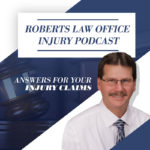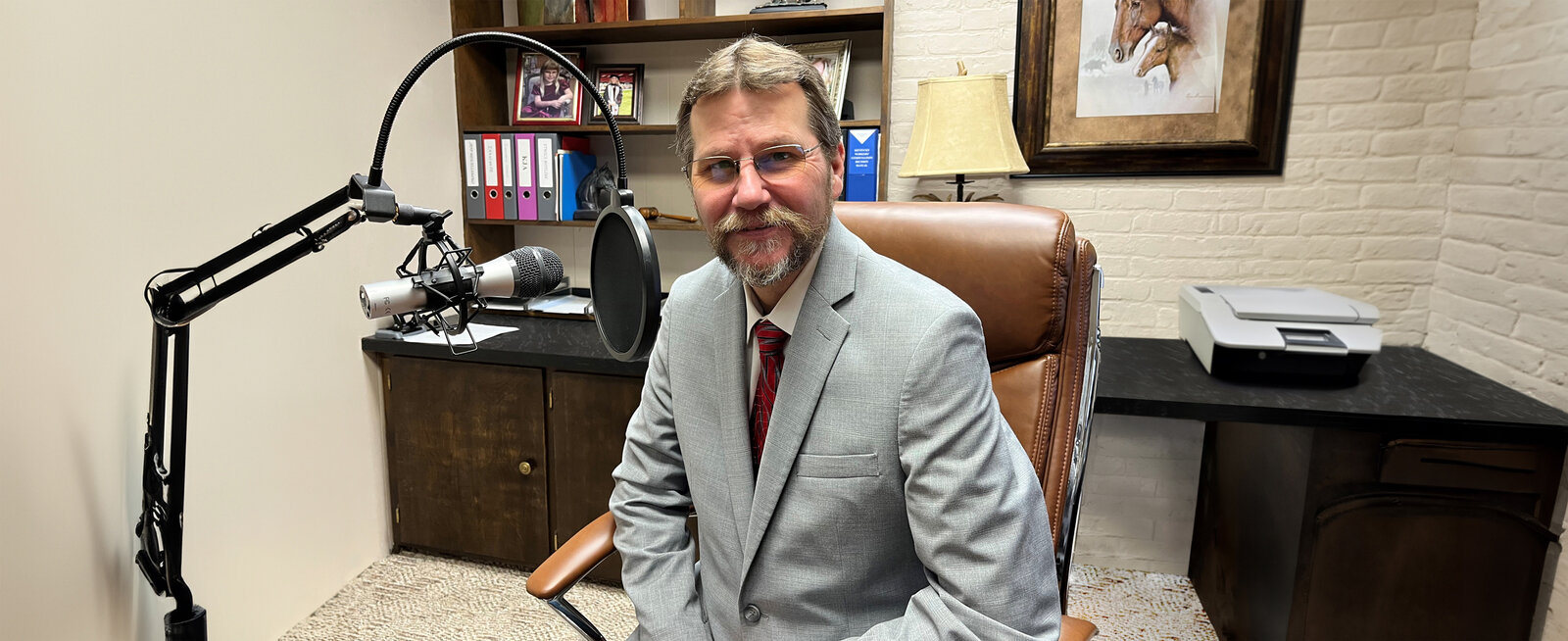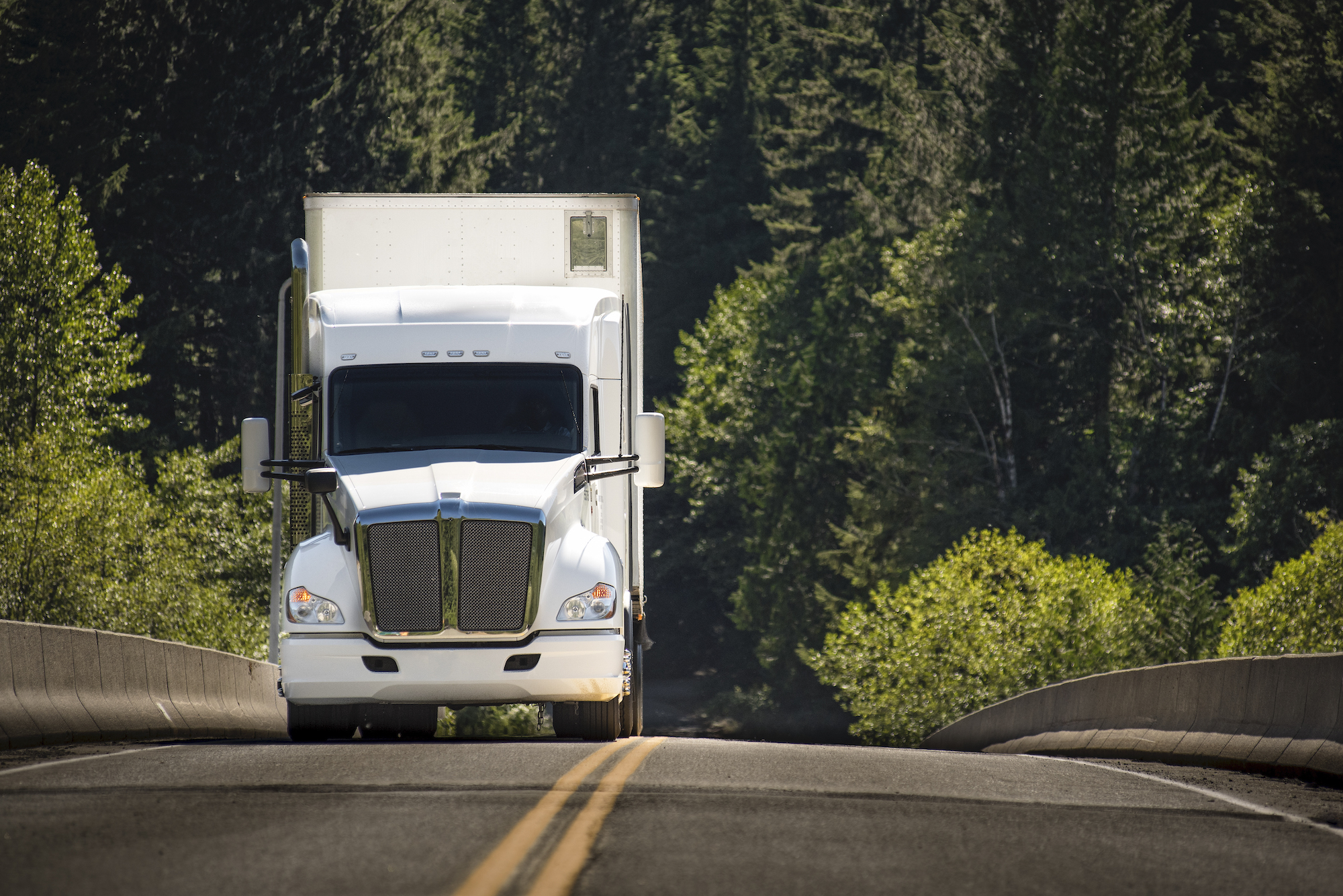Episode 89: Calloway County personal injury attorney Jeff Roberts discusses accidents involving self-driving cars. For the purposes of this episode, the term “self-driving” will refer to both autonomous driving vehicles and those requiring a driver to be in the front seat, but not necessarily guiding the vehicle the entire time.
Jeff is an active member of the Kentucky Justice Association (KJA). It’s an association of trial attorneys throughout the state focused on improving knowledge and trial skills, along with advocating for changes to the laws to better protect the injured citizens of Kentucky. Jeff will become the President of KJA in 2025.

New Kentucky Legislation
There are two laws regarding self-driving cars became effective in July of 2024. Autonomous vehicles refer to those not needing the assistance of driver to operate on the roads. Automated driving systems enable to the vehicle to travel on the roads, but require someone to be in the driver’s seat to takeover, should that be required for safety reasons.
It is legal to have an autonomous car on the road in Kentucky. Over time, this will also include large, tractor trailers. Autonomous trucks weighing 6,200 pounds or more will be legal on Kentucky beginning July 31, 2026.
Interestingly, Kentucky already allows “platooning.” This refers to multiple trucks operating together. The first truck would have a driver operating it, but the second truck would be electronically “connected” to the first truck. The second vehicle could operate via an automated driving system, as long as someone was seated in the driver’s seat.
Insurance Issues Related to Self-Driving Vehicles
Kentucky currently has a state-minimum insurance requirement of $25,000. For self-driving vehicles, the coverage requirements will be much greater. For a fully-autonomous vehicle, the minimum insurance coverage will be $1,000,000.
Jeff states one of the biggest concerns involves assigning responsibility for an autonomous vehicle that causes a collision. The theory is that autonomous vehicles are intended to be safer than other vehicles operated by humans, on the roads.
Jeff has read articles detailing how autonomous vehicles can have problems when a first-responder vehicle is on an emergency run. The light in the autonomous vehicle’s lane might be green, but the emergency vehicle needs to proceed through the intersection. Normally, traffic would stop and allow this to occur, safely. How will the autonomous vehicle make this determination in time to stop, even though sensors indicate it has a greenlight?
Additionally, snow on the road may make it difficult for the self-driving vehicle to detect the edges of the lanes.
Again, the question is if the autonomous truck was at-fault, who is responsible? It could be the software company used by the truck. Jeff points out that you can’t sue a non-person. For example, if it’s a Tesla, Tesla may not have designed the autonomous driving software used in the vehicle. It may be difficult to discover the actual manufacturer, because a company may not want to unveil the name of its supplier. Think of it as a trade secret issue.
Suing a company over a design defect or manufacturing defect related to the software is an extremely, expensive type of litigation. Product liability case are typically expensive to pursue. Expert witnesses will be required to submit reports and testify as to what caused the problem and how it could have been fixed to avoid the problem that ultimately resulted in the injury.
The attorney representing the injured victims could have six-figures in fees tied up in trying to prove the case, on a contingency fee basis. Assuming you’re driving your pickup truck in downtown Murray or Hopkinsville and you’re hit by an autonomous tractor trailer. Let’s assume you have minor injuries, but your $50,000 truck is totaled. Faced with having to prove a product liability case requiring him/her to invest $100,000 or more to get your case to trial, it’ll be difficult to find an attorney willing to take the risk. The math doesn’t work. The recovery of your damages is far less than the cost of litigating the case.
Kentucky addressed the issue by putting a law into place which considers the owner of the truck to be the driver, even if the tractor trailer is an autonomous vehicle. Thus, plaintiff attorneys can avoid the need to pursue a product liability case. Now, the case can be handled just like a normal car accident case.
Jeff is proud that KJA was able to successfully lobby the legislators to help get this law, along with the higher insurance requirements, put into place to protect the rights of drivers in Kentucky.
In Episode 80, Jeff discussed various tractor trailer accident factors. Collisions with large trucks often result in catastrophic injuries and/or death.
Jeff clarifies that Kentucky’s no-fault benefits (PIP coverage) would certainly apply to a collision with a self-driving vehicle. He detailed that coverage in Episode 65. Additionally, he spoke about no-fault coverage in Episode 59.
Safe-Driving Technology
Jeff comments on how many cars are already equipped with lane departure, automatic breaking and other safety features. Fortunately, the technology being used by self-driving vehicles are even more advanced. He admits there will be a learning curve for the manufacturers of autonomous vehicles. This creates a scary situation for other drivers on the road with self-driving cars in the area. Hopefully, the technology will avoid having the vehicles camp out in the left lane; but that’s a topic for another episode!
What Do Other Clients Think About Jeff?
We always encourage listeners to read the Google Reviews Jeff Roberts has received from many of his clients. A 5-Star rating and the comments are earned recognition and demonstrate Jeff’s commitment to his clients. As a solo attorney, he has more Google Reviews than some firms with multiple attorneys. Jeff shares the credit with his staff at the Roberts Law Office. Successfully representing injured clients is a team effort. It’s why Jeff likes to say his firm offers small town service with big city results.
Jeff Roberts Represents Injured Clients Throughout Kentucky
With offices located in Calloway County (Murray) and now in Christian County (Hopkinsville), Jeff has a history of representing personal injury clients, workers’ compensation clients and social security disability clients across the state. He’s represented clients from Paducah, Bowling Green, Louisville, Covington, Whitesville and many other Kentucky locations. He’s not just a Western Kentucky injury attorney.
We hope you found this episode insightful and helpful. Thank you for listening!
Is It Time to Speak with an Attorney about Your Automobile Accident Claim?
The office phone number is (270) 753-0053 or toll free at 800-844-5108. For more information, visit www.JeffRobertsLaw.com. This podcast is meant to provide information and is not legal advice. Jeff’s principal office is located at 509 Main Street, Murray, Kentucky. Co-host Jim Ray is a non-attorney spokesperson. This is an advertisement.




